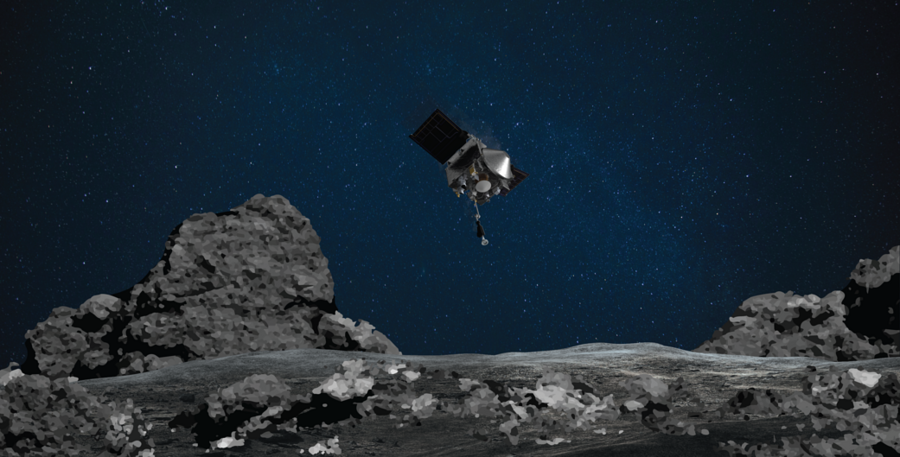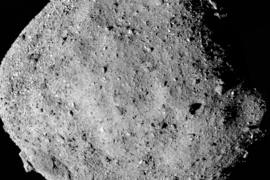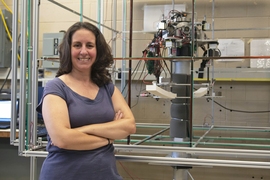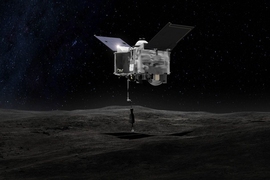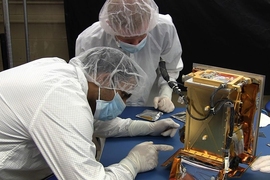The Space Foundation, a nonprofit organization that advocates for space exploration and space-inspired industries, has awarded NASA’s first-ever asteroid sample return mission, the Origins, Spectral Interpretation, Resource Identification, Security-Regolith Explorer (OSIRIS-REx), with the prestigious 2022 John L. "Jack" Swigert Jr. Award for Space Exploration.
"It is humbling to join the list of so many amazing award recipients. Recognition in this case is across a very large NASA team, and we are honored to have had a role in the OSIRIS-REx mission,” says Richard Binzel, a co-investigator on the project and professor post-tenure in the MIT Department of Earth, Atmospheric and Planetary Sciences (EAPS).
Launched in 2016, OSIRIS-REx traveled to near-Earth asteroid Bennu, arriving in 2018, where it successfully harvested a piece of the asteroid. Currently, the spacecraft is en route back to Earth carrying this small sample, slated to return in 2023. Together with Harvard College Observatory, MIT provided the student-built Regolith X-ray Imaging Spectrometer (REXIS) instrument, a joint effort across multiple units of MIT, including EAPS, the Department of Aeronautics and Astronautics (AeroAstro), the Kavli Institute for Astrophysics and Space Research, and MIT Lincoln Laboratory. The goal of REXIS is to analyze the effect of the sun’s X-rays on the asteroid’s soil, identifying chemical elements on Bennu’s surface.
“Being a part of the OSIRIS-REx mission has been an amazing experience for the entire REXIS team, which is composed of many talented engineers and scientists,” says Rebecca Masterson, principal research scientist in AeroAstro who served as program manager and co-principal investigator on the REXIS project. “It has been an honor to work with everyone involved. Now, we are all waiting anxiously to see what new discoveries arise from the analysis of the sample.”
The John L. “Jack” Swigert Jr., Award for Space Exploration was created in memory of NASA astronaut Jack Swigert, a Colorado native who served on the Apollo 13 lunar mission. In 1982, Swigert was elected to the U.S. House of Representatives but died of cancer before taking the oath of office. The Space Foundation created the Swigert Award in 2004 in tribute to his legacy of space exploration.
According to Binzel, not only will the OSIRIS-REx mission provide invaluable scientific knowledge, but it provided a once-in-a-lifetime opportunity for a generation of MIT students who worked on the project.
“Within the REXIS project and its interplanetary flight aboard NASA'S OSIRIS-REx spacecraft, nearly 100 MIT students received hands-on experience in designing, building, testing, and operating space hardware over a 10-year period,” says Binzel. “REXIS is the first MIT student experiment to fly in interplanetary space.”
